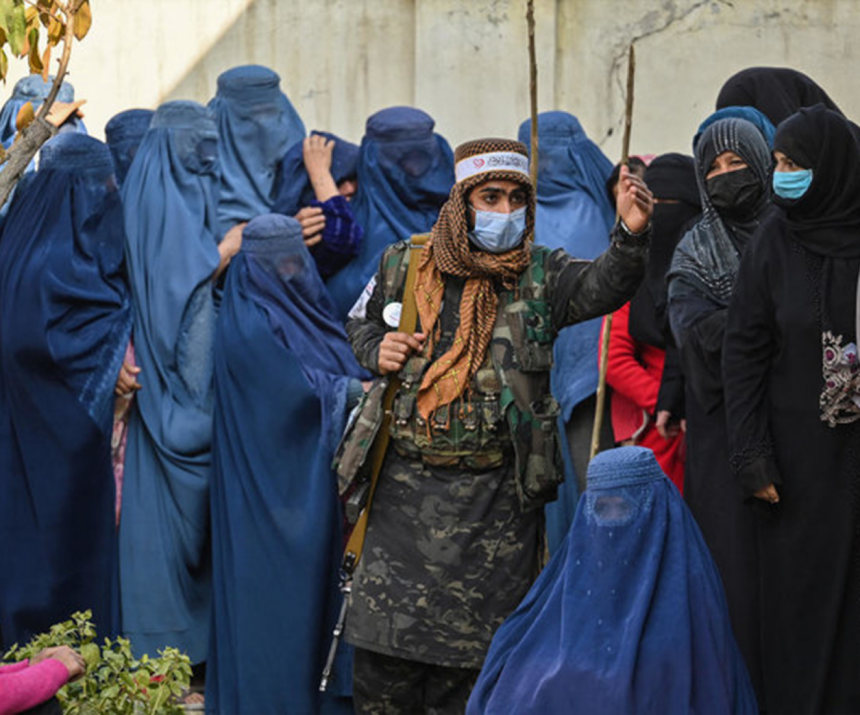RASC News Agency: Several Afghanistani women are voicing their concerns over the Taliban’s growing restrictions, particularly the enforcement of a “male guardian” (Mahram) requirement when leaving their homes, which has compounded the difficulties they face. These women report that since the Taliban’s imposition of their strict morality code, restrictions on women’s movement have tightened across several provinces. Notably, while the Taliban’s edict does not directly ban women from leaving home without a male guardian, Article 20 of the “Commanding Good and Forbidding Evil” law instructs drivers not to transport unaccompanied women.
In reality, however, the Taliban systematically prevent women from traveling or even leaving home without a male family member. This restriction has proven especially burdensome for women whose husbands are abroad, leaving them without support in critical situations. Mursal, whose husband is outside the country, shared her experience: “A few days ago, I went to the market for groceries. They stopped me and asked, ‘Where are you going without a guardian?’ I had nothing to say. I told them, ‘I don’t have a guardian; my husband isn’t here. Who should I bring? My family is in Mazar-i-Sharif, not here. How could I even go live with them?’ My only hope lies with God and my husband.”
Laila voiced similar concerns: “What worries me most is that, as a woman, I can’t go to the market alone or manage my own affairs. If my child falls ill in the middle of the night and my husband isn’t here, am I supposed to knock on a neighbor’s door and rely on a stranger?” These imposed restrictions have heightened women’s dependence on their absent husbands, many of whom have been compelled to remain abroad for work, leaving families without direct support.
In response to this issue, Taliban spokesperson Saif-ul-Islam Khyber, representing the Ministry for the Promotion of Virtue and Prevention of Vice, stated that women without husbands could be accompanied by other male family members. In Afghanistan, where job restrictions, economic burdens, and the absence of male support already strain women, these additional restrictions have intensified hardships. According to the International Organization for Migration, since 2020, approximately eight million Afghanistanis have migrated to various countries, further challenging the families left behind.






